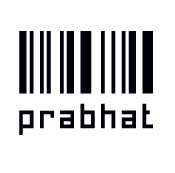Android is a software platform and operating system for mobile devices, based on the Linux Kernel, developed by Google and later the Open Handset Alliance. Android is the first complete, open, and free mobile platform.
It allows developers to write managed code in a Java-like language that utilizes Google-developed Java libraries, but does not support programs developed in native code.

The first phone running Google Android is the HTC G1, the Smart Phone for T-Mobile. Android will enable a richer, more powerful user experience on mobile phones.
Phone Experience
Android-powered phones can run multiple applications, all at once, and switch seamlessly between them. Notifications alert you when applications running in the background require your attention.
The native WebKit browser lets users experience the "full web" and easily move between browsing and other tasks on their phone.
This will allow personalizing the home screen to suit your needs and tastes.
Open Source Development
Android market is an open service that will give developers the opportunity to distribute applications to handsets. This will enables developers to easily create great mobile applications. The complete Android platform will be open-sourced by the end of 2008.
To help developers get started developing new applications, the Open Handset Alliance is also offering the SDK.
The Android SDK includes a comprehensive set of development tools. These include a debugger, libraries, a handset emulator, documentation, sample code, and tutorials). Currently supported development platforms include x86-based computers running Linux (any Linux Distribution), Mac OS X 10.4.8 or later, Windows XP or Vista. Requirements also include Java Development Kit, Apache Ant, and Python 2.2 or later. The officially supported integrated development environment (IDE) is Eclipse (3.2 or later) using the Android Development Tools (ADT) Plug-in, though developers may use any text editor to edit Java and XML files then use command line tools to create, build and debug Android applications.
So does all this mean there is a new competitor for Microsoft Windows Mobile?
External Links:
Google Android: http://code.google.com/android/index.html
Official Android Site: http://www.android.com





9 comments:
HTC is great, every time comes up with new technology. The leader in Windows based mobile phones, and NOW will be leader for Android based too :).
Cheers!!!
IT departments may not allow the T-Mobile handset corporate access as it lacks built-in Microsoft Exchange support and its security features are not tested.
Reference: http://www.informationweek.com
Best of luck for ur 1st post ;) Will like to more on mobile technology. I know this is one of your favorite area ;) Thanks.
Hi Friends,
Thanks for reading my post and adding your sweet comments :)
________________________________
Android is not a single piece of hardware; it's a complete, end-to-end software platform that can be adapted to work on any number of hardware configurations. Everything is there, from the bootloader all the way up to the applications. And with an Android device already on the market, it has proven that it has what it takes to truly compete in the mobile arena.
Even if you're not planning to ship a mobile device any time soon, Android has a lot to offer. Interested in working on a speech-recognition library? Looking to do some research on virtual machines? Need an out-of-the-box embedded Linux solution? All of these pieces are available, right now, as part of the Android Open Source Project, along with graphics libraries, media codecs, and some of the best development tools I've ever worked with.
Have a great idea for a new feature? Add it! As an open source project, the best part is that anyone can contribute to Android and influence its direction. And if the platform becomes as ubiquitous as I hope it will, you may end up influencing the future of mobile devices as a whole.
This is an exciting time for Android, and we're just getting started. It takes a lot of work to keep up with the changes in the mobile industry. But we want to do more than just keep up; we want to lead the way, to try things out, to add the new features that everyone else is scrambling to keep up with. But we can't do it without your help.
What will you do with Android?
Even Microsoft considering Silverlight for the Android Platform.
For Google, mobile is critical to its information-centric business. Which is why it has big ambitions for getting the OS on as many devices as it can.
The G1, the first mobile phone based on Google’s open source Android platform, features a security vulnerability.
Researchers from Independent Security Evaluators (ISE: http://securityevaluators.com), said the problem occurred because Google didn’t use the most up to date versions of the open source packages that make up Android. This particular security vulnerability that affects the G1 phone was known and fixed in the relevant software package, but Google used an older, still vulnerable version.
You can find in Internet that Nokia is planing to pay $410 million to buy out UK-based mobile phone OS maker Symbian and plans to make its software available, royalty-free, to boost phone sales and respond to new rivals such as Google. So Nokia is Grabbing Symbian and Will Make OS Royalty-Free!!!
- Big Competition for Windows Mobile & Android.
Google has reportedly patched a browser flaw in its Android operating system, which left anyone with the new T-Mobile G1 vulnerable.
It is very Cool!!!
You know this is the first mobile device born of the team of Google, T-Mobile, and HTC, the G1 combines a mobile phone, 3G and Wi-Fi data networking, a touchscreen, and a swivel-out QWERTY keyboard. The secret sauce is Google's Android operating system.
Post a Comment